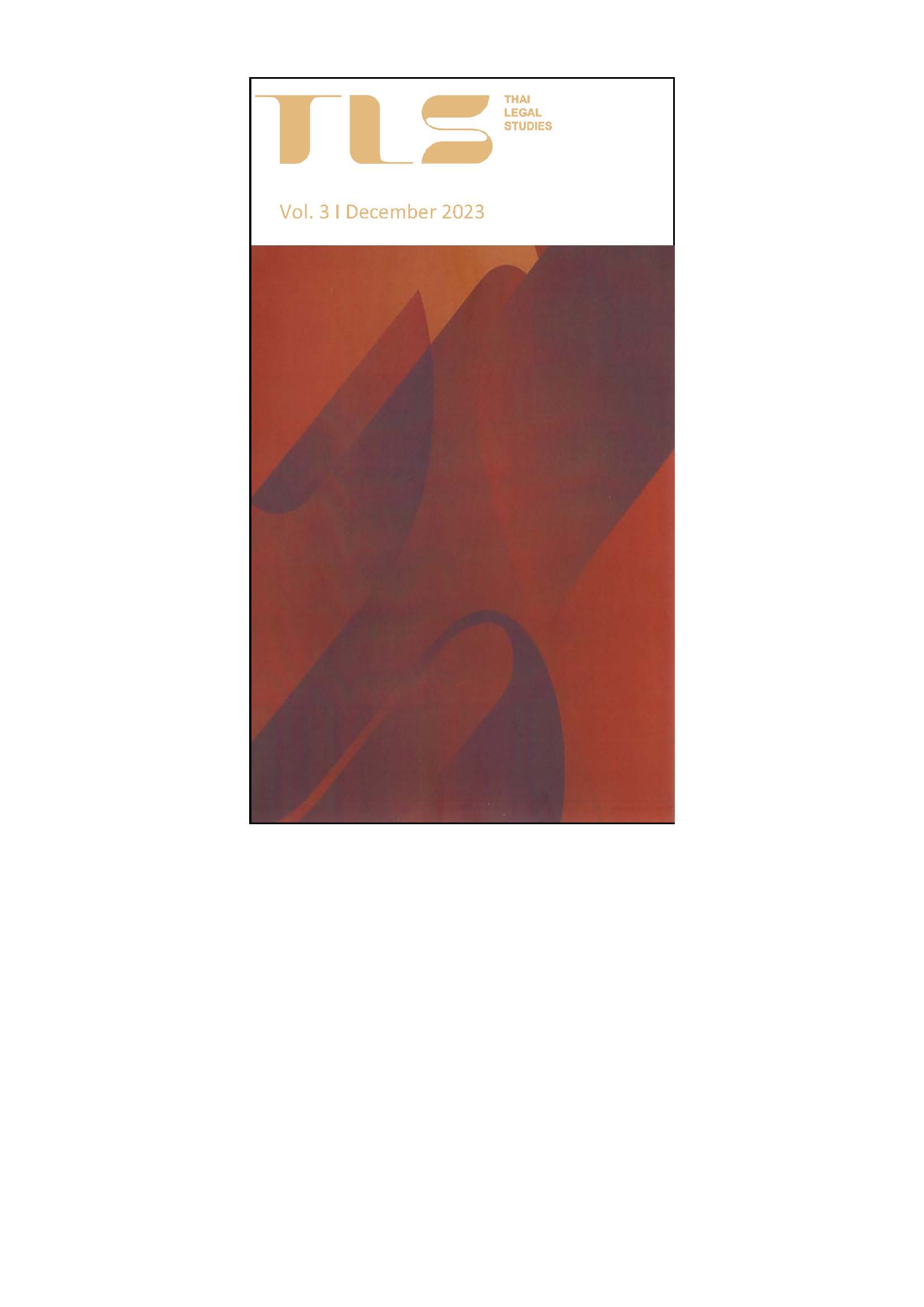Enigmatic Aspects of “Time Is of the Essence” in Construction Law of Thailand: A Comparative Study of Common Law in England and Australia
DOI:
https://doi.org/10.54157/tls.262870Keywords:
Time is of the essence , International comparative law , Thai Civil and Commercial CodeAbstract
This article studies intricacies of the statement “time is of the essence” in a legal context, in relation to construction delays in Thailand, comparatively analysed in terms of law in England and Australia. Notably, the Supreme Court of Thailand has applied “time is of the essence” in a broader manner than its counterparts in England and Australia, surpassing boundaries set by Section 596 of the Thailand Civil and Commercial Code (CCC), the provision explicitly recognising the concept. These findings suggest that while this Supreme Court approach may aspire to fairly resolve construction disputes, its application beyond the statutory framework leads to legal uncertainties, potentially significantly impacting construction contract administration.
References
Bailey, Ian. Construction Law in Australia (4th edn, Thompson Reuters 2019).
Bailey, Julian. Construction Law (2nd edn, Informa Law 2016). https://doi.org/10.4324/9781315755465
Carter, John, Wayne Courtney, and Gregory Tolhurst. “An Assimilated Approach to Discharge for Breach of Contract by Delay.” (2017) 76(1) Cambridge Law Journal 63. https://doi.org/10.1017/S0008197316000830
Charrett, Donald. “Lex Constructionis—Or My Country’s Rules?” (2021) 38 International Construction Law Review 61. https://doi.org/10.4324/9781003206897-40
Chen-Wishart, Mindy. Contract Law (4th edn, Oxford University Press 2012).
Davenport, Phillip. “Variations Ordered After the Date for Practical Completion.” (1991) 17 Australian Construction Law Newsletter 53.
El Daouk, Mohamad. “Time of the Essence in Building Contracts.” (2023) 15(2) Journal of Legal Affairs and Dispute Resolution in Engineering and Construction 5. https://doi.org/10.1061/JLADAH.LADR-949
Furst, Stephen, and Vivian Ramsey. Keating on Construction Contracts (11th edn, Thompson Reuters 2021).
Gemmel, Robert. Quantification of Delay and Disruption in Construction and Engineering Projects (2nd edn, Thomson Reuters 2021).
Gerber, Paula, and Brenan Ong. Best Practice in Construction Disputes: Avoidance, Management and Resolution (LexisNexis Butterworths 2013).
Lim, Tony. “Essence of Time in Construction Contracts.” (2012) 9(2) Australasian Journal of Construction Economics and Building 1. https://doi.org/10.5130/AJCEB.v9i2.3016
Srinivasan, Badrinath. “The Law on Time as Essence in Construction Contracts: A Critique.” (2021) 8(1) RGNUL Financial and Mercantile Law Review 1.
Stannard, John. “So What If Time Is of the Essence?” (2005) Singapore Journal of Legal Studies 114.
Sources in Thai
ไกรวิณี สุนทรมน. “สิทธิของผู้ว่าจ้างในการบอกเลิกสัญญาจ้างทำของ.” (วิทยานิพนธ์นิติศาสตรมหาบัณฑิต, มหาวิทยาลัยธรรมศาสตร์ 2551) [Krivinee Soontornmon. “The Rights of an Employer to Rescind the Contract for Work.” (LLM Thesis, Thammasat University 2008)].
นนทวัชร์ นวตระกูลพิสุทธิ์. หลักกฎหมายเอกเทศสัญญาลักษณะจ้างแรงงาน—จ้างทำของ—รับขน. (พิมพ์ครั้งที่ 2 ธรรมศาสตร์ 2562) [Nontawat Nawatrakulpisut. Principles of Specific Contracts on Hire of Service —Hire of Work—Transportation Service (2nd edn, Thammasat 2019)].
ไผทชิต เอกจริยกร. คำอธิบายกฎหมายจ้างแรงงาน จ้างทำของ รับขน (พิมพ์ครั้งที่ 10, วิญญูชน 2554) [Pathaichit Eagjariyakorn. Explanation on the Law of Hire of Service, Hire of Work, Transportation Service (10th edn, Winyuchon 2011)].
ไพจิตร ผาวัน, ชำนาญ พิเชษฐ์พันธ์, และกัมพล กิตติพงษ์พัฒนา. คำอธิบายสัญญาจ้างเหมาก่อสร้างมาตรฐาน (สัญญาศรีปทุม) (เฟิสท์ ออฟเซท 2563) [Paijit Pawan, Chamnan Pichedpan, and Kumpon Kittipongpattana. Commentary on Standard Lump Sum Construction Contract (Sripatum Contract) (First Offset 2020)].
Published
Issue
Section
License
Copyright (c) 2023 Thanapat Yaemklin, Kumpon Kittipongpattana

This work is licensed under a Creative Commons Attribution 4.0 International License.
Authors retain copyright and publishing rights without restrictions, but grant Thai Legal Studies the right of first publication in English and to distribute the work under a Creative Commons Attribution 4.0 International Public License (“CC BY 4.0”). It allows others to freely share the work, including the making of translations. There is no charge or fee for readers to immediately view published articles or content, and users are allowed to read, download, copy, distribute, print, search, link to the full texts of the articles, or use them for any other lawful purpose, without asking prior permission from Thai Legal Studies or the author(s), the only requirement being that an acknowledgement is given of the work’s authorship and its initial publication in English by Thai Legal Studies.







